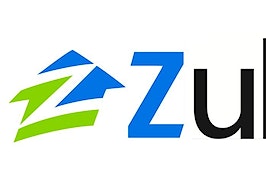SAN FRANCISCO — What does the pending merger between real estate’s most popular real estate sites, Zillow and Trulia, mean for a huge real estate brand like Re/Max?
Re/Max LLC co-founder and CEO Dave Liniger had the opportunity to grill Zillow CEO Spencer Rascoff on that industry-sized question onstage at Re/Max’s annual broker-owner conference in San Francisco this morning.
“As long as we’re partners in success, we’re happy,” Liniger told Rascoff in front of the audience of approximately 1,000 Re/Max broker-owners, predominantly from the U.S. and Canada. “If we become competitors (if Zillow starts making moves as a real estate firm rather than a media company), you won’t get any more of our listings.”
“I hear you loud and clear,” Rascoff said.
In addition to providing a direct feed of all of its listings to the big three portals Zillow, Trulia and realtor.com, Re/Max currently has marketing agreements with each that give all of its agents a discount on advertising, said Shaun White, vice president of communications at Re/Max.
Even though Zillow will significantly extend its traffic leadership in the U.S. with the acquisition of Trulia, Liniger says he’s not worried about Zillow gaining too much leverage, pricing or otherwise. Zillow’s acquisition of its second-largest competitor is expected to close sometime in 2015.
Re/Max played the portals off of each other to negotiate better terms and pricing on advertising, Liniger told Rascoff and the crowd. Liniger said he’s not concerned that the merger will diminish Re/Max’s clout to swing such deals.
If Zillow raises prices exorbitantly or changes its business model in a way that competes with Re/Max, the franchisor has hundreds of others sites to advertise its listings on, Liniger said.
Zillow does not have plans to raise prices when it takes Trulia under its wing, Rascoff said.
Brokers and agents have many other places to advertise offline and on the Internet, so potential price hikes are limited by the relative return on investment Zillow provides its advertisers, Rascoff said.
The fear that Zillow might drastically raise prices is based in part on comments that Rascoff made in a conference call with investment analysts last November. Rascoff predicted that agents will someday be “willing to pay up to 40 percent of their commission to the channel that provides them with a customer.”
But he said the comments were made in respect to “total addressable market,” and that Zillow has no plans to move from impression-based advertisting to a referral model.
From the Re/Max stage, Rascoff said Zillow is currently focused on capturing more of what brokers and agents spend on marketing, but reiterated that “we will not charge referral fees.”
When online real estate sites first started sprouting up 15 years ago, Liniger said he was concerned about companies bringing nothing of value to the table.
But now Liniger thinks the large portals like Zillow, Trulia and realtor.com bring more than just a knife and fork to the picnic — they bring audience and a technological innovation that Re/Max can capitalize on.
“We don’t have a large tech department,” Liniger said. That’s where Zillow, Trulia and realtor.com and the many millions of dollars they spend on online lead-gen technology are valuable to Re/Max, he said.



